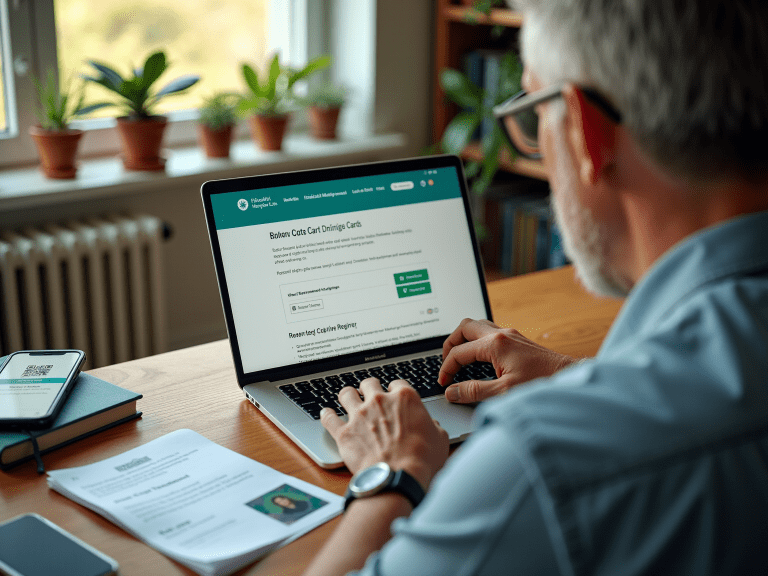Which States Allow Out-of-State Patients to Buy Medical Marijuana?
by Haley Mills · June 10, 2024
Looking for information on which states allow out-of-state patients to buy medical marijuana? Look no further! This comprehensive guide provides everything you need to know on the subject.
If you’re planning to travel out of state, you may wonder if your medical card is valid in another state. Medical marijuana laws vary significantly from state to state. These laws usually include using low-THC products and removing criminal penalties for Medical cannabis patient cardholders.
Certain states allow out-of-state patients to purchase and possess specific amounts of cannabis; however, it varies significantly by location and their established medical marijuana program. Read on to find out more about out-of-state reciprocity in your location.
What is Medical Marijuana?
Medical cannabis is available nationwide in over thirty states and for many patients with qualifying conditions within those states.
Patients can use medical marijuana to treat various conditions, ranging from chronic pain, neurological disorders, Crohn’s disease, epilepsy, and insomnia to cancer, PTSD, anxiety, depression, chronic stress, Multiple Sclerosis, or HIV/AIDS. Medical marijuana is still federally illegal but has been decriminalized or legalized in many areas.
In the United States, medical marijuana programs have been legalized in 37 states: the District of Columbia, Puerto Rico, Guam, and the U.S. Virgin Islands. Medical marijuana programs allow patients with specified conditions to own, grow and utilize cannabis products to aid in managing their condition, even if recreational cannabis users are not authorized.
Health Benefits
The potential benefits of medical treatment with cannabis are vast. Specific cannabinoids can produce a therapeutic potential for patients with different health conditions.
Several peer-reviewed studies suggest that cannabinoids have varying health benefits. They have been used throughout history to manage various health concerns and ailments. While research continues, more evidence suggests that cannabis and cannabinoids can benefit human health.
Studies are being done worldwide to see how cannabis may aid in fighting cancer, slowing down tumor growth, and if cannabinol delays symptom onset for certain chronic pain conditions. It can help with addiction treatment, increase appetite, aid in sleep, improve muscle function, and manage seizures, and it has significant anti-inflammatory benefits.
Marijuana has many potential medical uses, including:
- It effectively reduces pain, nausea, and vomiting associated with cancer and other illnesses.
- It may also be used to manage mental illnesses such as PTSD, schizophrenia, and bipolar disorder.
- Marijuana has also been shown to reduce intraocular pressure in the eyes of people with glaucoma. It may cause the pupil to constrict, reducing the pressure inside the eye.
- Seizure management, particularly from epilepsy.
- Diseases such as Crohn’s disease, HIV/Aids, Multiple sclerosis, and Alzheimer’s.
Potential Risks
There aren’t many known side effects for CBD, and most side effects from marijuana come from higher doses and long-term use.
Marijuana also affects brain development if used at an early age. When people begin using it as teenagers, it can impair cognitive functions and affect how the brain connects and communicates with other body areas.
Other adverse side effects include:
- altered senses or sense of time
- mood changes
- impaired body function
- slowed memory and thinking skills
- hallucinations or delusions (high doses only)
- psychosis (high doses, significant long-term use only)
What is Out-of-State Reciprocity?
Out-of-state medical card reciprocity is when a medical cannabis program in one state honors an MMJ certificate from another state as valid.
Suppose you are a valid medical cannabis patient in one state. In that case, you can continue to use medical marijuana when you travel to a state with reciprocity and will need to follow the state laws where you are traveling.
The following states have legal medical cannabis programs:
- Alabama
- Alaska
- Arizona
- Arkansas
- California
- Colorado
- Connecticut
- Delaware
- Florida
- Hawaii
- Illinois
- Iowa
- Louisiana
- Maine
- Maryland
- Massachusetts
- Michigan
- Minnesota
- Mississippi
- Missouri
- Montana
- Nevada
- New Hampshire
- New Jersey
- New Mexico
- New York
- North Dakota
- Ohio
- Oklahoma
- Oregon
- Pennsylvania
- Rhode Island
- South Dakota
- Utah
- Vermont
- Virginia
- Washington
- West Virginia
- Washington D.C.
The following states allow access to CBD with low THC:
- Georgia
- Idaho
- Indiana
- Kansas
- Kentucky
- North Carolina
- South Carolina
- Tennessee
- Texas
- Wisconsin
- Wyoming
Medical Marijuana Qualifications
A state-issued medical cannabis card allows adults with certain qualifying conditions to purchase and use medical cannabis. Medical marijuana is still federally illegal but has been decriminalized or legalized in some states to treat specific qualifying ailments.
Board-certified physicians can prescribe cannabis as a treatment and recommend it to their state cannabis regulatory body to issue a medical marijuana card. Medical cannabis applicants must provide written documentation from their healthcare providers before applying for a card.
To be eligible for a medical marijuana card, applicants must suffer from one of the qualifying conditions established by their state. The qualifying conditions for medical marijuana cards vary from state to state.
The following are common conditions recognized by most states as qualifying for a medical marijuana prescription and card:
- Cancer
- HIV/AIDS
- Epilepsy
- Multiple Sclerosis or other neurological disorders
- Glaucoma
- Post-traumatic stress disorder (PTSD)
- Chronic pain
- Severe nausea associated with chemotherapy or other challenging-to-tolerate medications
- Wasting Syndrome
States that Don’t allow out-of-state MMJ patients
The following states do not offer out-of-state reciprocity. Sometimes, the state allows visiting patients with a state-approved qualifying condition to possess cannabis but not purchase it.
Georgia
Even though Georgia has approved a medical marijuana program, there is still no legal way to purchase it.
Minnesota
Minnesota doesn’t accept out-of-state medical marijuana cards. Cannabis possession of fewer than 42.5 grams is a minor misdemeanor. A judge may order drug rehabilitation for first-time offenders.
New Jersey
New Jersey is one of the states that does not allow out-of-state MMJ cardholders to purchase or possess marijuana.
New York
As New York prepares to allow recreational use, they do not accept medical cards from out-of-state residents.
Ohio
Ohio does not offer reciprocity to out-of-state patients. Possession of fewer than one hundred grams of cannabis is a minor misdemeanor, punishable by a fine of 150 USD.
Virginia
Virginia doesn’t recognize out-of-state medical marijuana cards. The state decriminalized marijuana in 2020. The maximum penalty for possession of one ounce of marijuana is a 25 USD fine.
Pennsylvania
Pennsylvania has legalized cannabis use, but its’ laws remain strict. They do not extend reciprocity to out-of-state MMJ patients.
States that Allow Out-of-State Patients
Arizona
Arizona provides limited reciprocity to visiting qualifying patients. As a visiting qualifying patient, the out-of-state medical cardholder must not be a resident of Arizona for less than 30 days. They must have a qualifying condition included in Arizona’s medical cannabis law. Recreational cannabis is legal in Arizona, with a possession limit of 2.5 ounces.
Arkansas
Those with out-of-state medical marijuana cards can legally purchase MMJ in Arkansas. Patients must fill out a visiting patient form and prove their out-of-state medical marijuana registration is valid.
Maine
Medical patients visiting Maine are not required to obtain certification from a Maine medical provider or to designate a dispensary to obtain medical cannabis. Recreational use is legal in Maine.
Massachusetts
Massachusetts doesn’t recognize out-of-state medical cards but allows recreational sales for adults. The state offers reciprocity for possessing one ounce of medical marijuana.
Michigan
Michigan’s dispensaries can accept out-of-state medical marijuana cards at their discretion. Recreational cannabis is legal for adults over 21 in Michigan.
Missouri
Missouri’s Amendment 2 suggests that those with a valid out-of-state MMJ card can legally possess the legal limit of four ounces of marijuana.
Montana
Montana recognizes other states’ medical marijuana cards. Licensed dispensaries will check your qualifications online, your medical marijuana card, and your state I.D.
Nevada
Nevada recognizes all out-of-state medical cannabis cards.
New Hampshire
If an out-of-state patient has a New Hampshire qualifying condition, the state will recognize your medical marijuana card. Qualified patients from out of state can’t purchase at New Hampshire dispensaries but can legally possess medical marijuana in the state.
New Jersey
New Jersey recognizes out-of-state medical cards. Patients registered under their states’ medical marijuana program can be in New Jersey’s medical marijuana program for six months while visiting the state after certification from an N.J. doctor. Patients can possess three ounces of cannabis, and adult use is legal.
Oklahoma
Oklahoma recognizes out-of-state medical marijuana certificates. Visiting patients must fill out a Temporary Patient Application Information form to legally purchase medical marijuana from a licensed dispensary.
Utah
Medical marijuana patients with an approved qualifying condition may possess and use medical marijuana in Utah. New residents with valid medical cards can possess medical cannabis for up to 45 days.
Washington, D.C
Washington D.C. recognizes MMJ cards from a specific list of states with a possession limit of one ounce.
In Conclusion
Whether a state allows out-of-state patients to purchase, use, or possess medical cannabis dramatically depends on your state of residence. We recommend checking up on local laws for any location you plan to travel to, especially if you will be traveling with medical cannabis.
Be sure to bring your MMJ card with you during your trip and be aware of using cannabis in federal or public places, as that is typically prohibited in all states regardless of legal status.
Last Updated: August 8, 2024
Get Approved for Your Medical Marijuana Card in Minutes!

Get Your Medical Card
Connect with a licensed physician online in minutes

Like This Article?
Share with your friends
Table of Contents
Keep Reading
-
Wholesome And Delicious Healthy Cannabis Recipes
Looking for nutritious and delicious ways to enjoy cannabis? Explore our collection of wholesome cannabis recipes that will elevate your cooking game. Try them out today and experience a whole new level of culinary satisfaction!
-
How to Renew Your Medical Marijuanas Card Online in Florida: A Step-by-Step Guide
Easily renew your medical marijuana card online in Florida with our step-by-step guide.
-
4 Steps to Get the Cheapest Medical Marijuanas Card Online Ohio
Get your cheapest medical marijuanas card online in Ohio with these simple, efficient steps.



